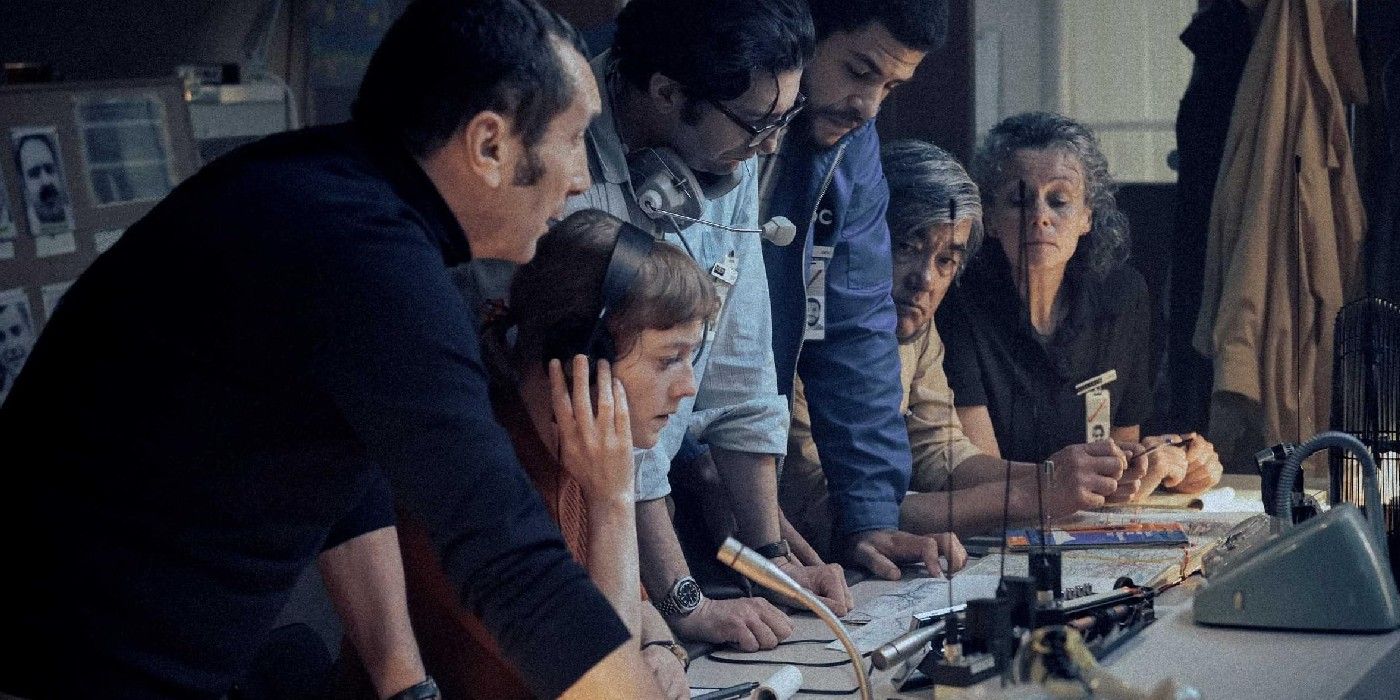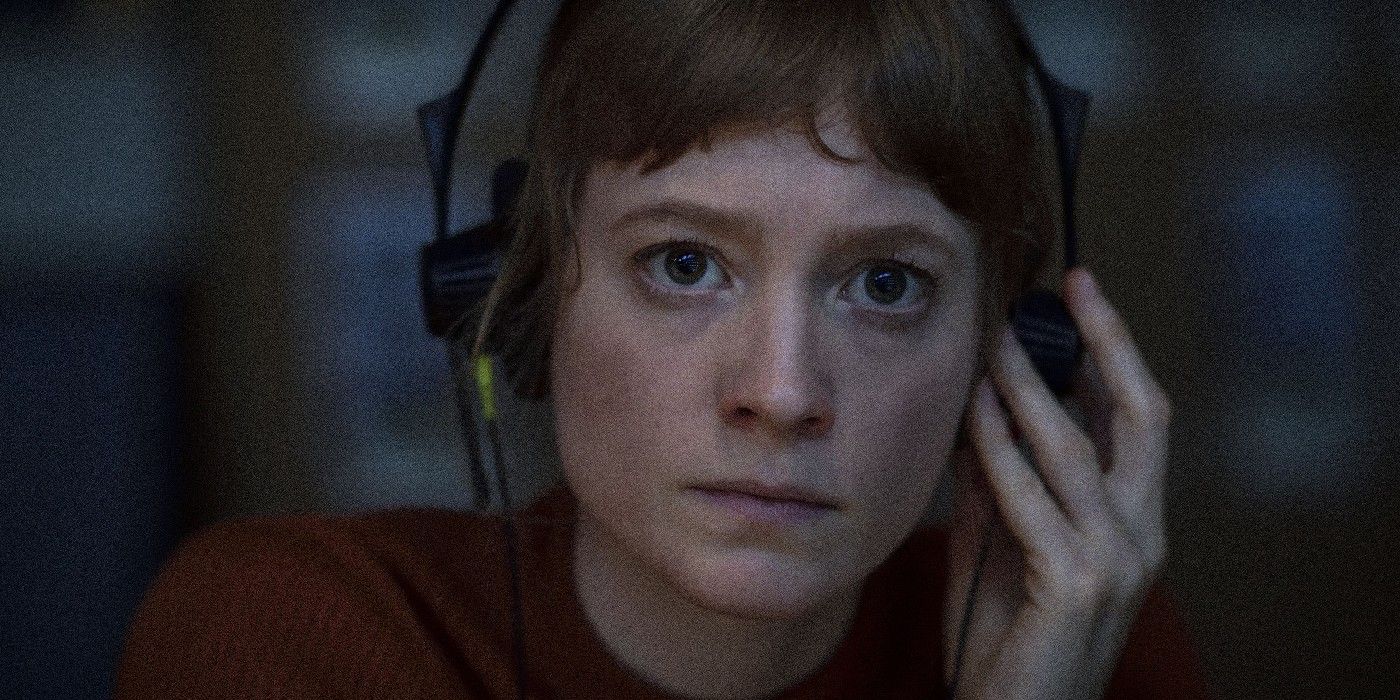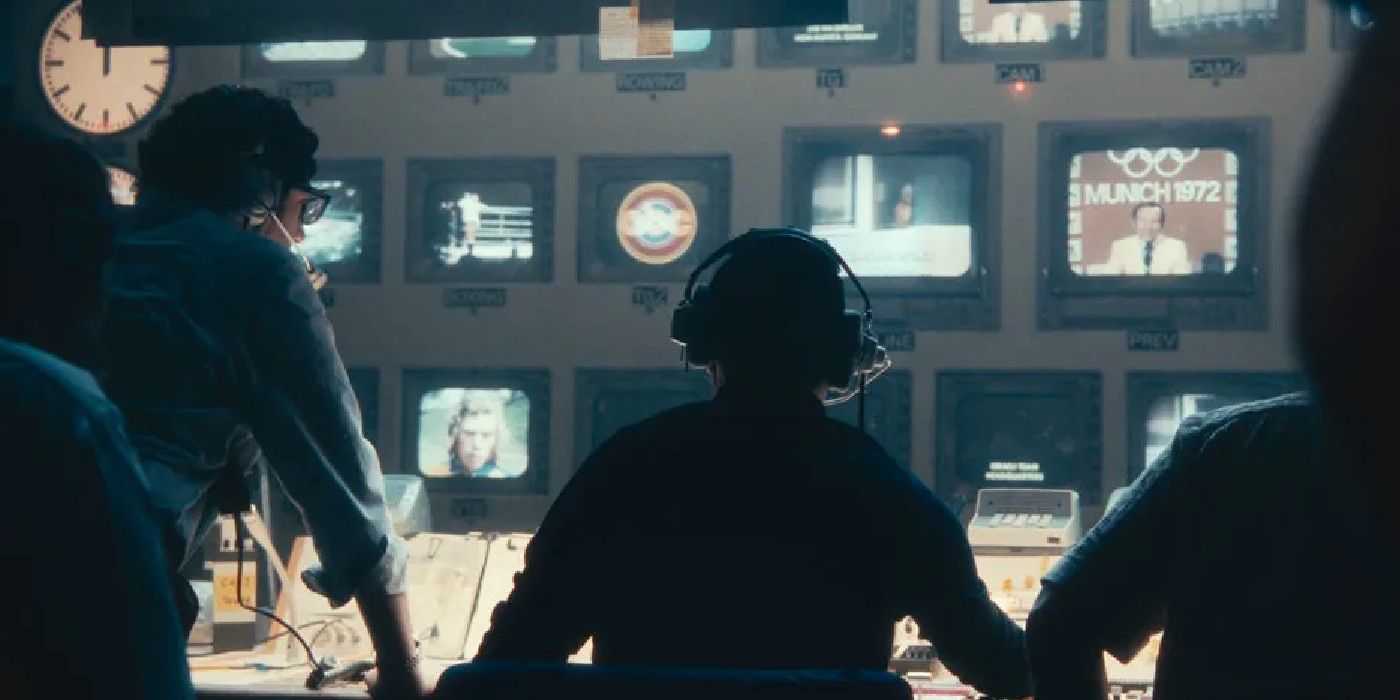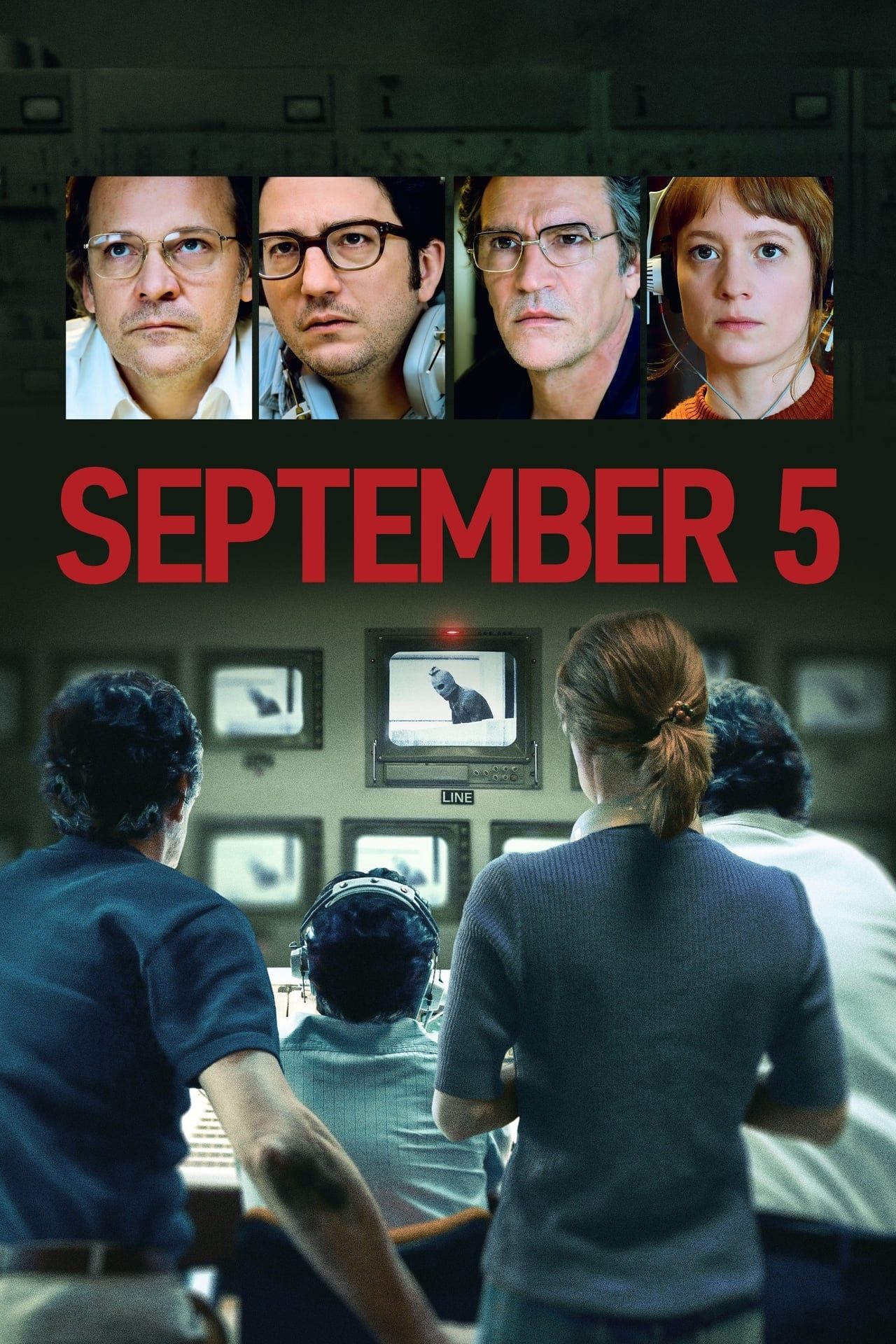
September 5’s True Story Explained: What Happened At The 1972 Munich Olympics
The 2024 movie, September 5, tells the true story of the 1972 Munich Olympic hostage crisis, a real crime that shocked the nation and changed the way news teams cover emergencies. Set to be released on November 29, 2024, September 5 was written and directed by Tim Fehlbaum, who has previously worked on German-Swiss movies such as Tides and Hell. The movie’s cast includes Peter Sarsgaard, John Magaro, Ben Chaplin, and Leonie Benesch. After premiering at the 81st Venice International Film Festival, September 5 earned a solid 86% critics’ score on Rotten Tomatoes.
September 5 is far from the first historical movie to explore real crises and the ways in which they were solved. In fact, this film brings to mind projects such as 2012’s Argo, Zero Dark Thirty, or Spotlight. However, along with exploring the actual crimes committed at the 1972 Munich Olympics, September 5 also offers a unique perspective through its main characters. Furthermore, the movie offers up connections to the current day that are hard to ignore. All in all, September 5 has a serious story to tell that audiences may not have heard about before.
September 5 Is Based On The True Story Of The Terrorist Attack At The 1972 Munich Olympics
The Historical Context Of September 5
September 5 is based on the very real terrorist attack that occurred at the 1972 Munich Olympics. On September 5, 1972, eight members of the Palestinian Liberation Organization, Black September, snuck into the Olympic village carrying a number of weapons, ranging from guns to hand grenades. The terrorists entered the lodgings of the Israeli delegation in the early hours of the morning, and killed two individuals before taking nine more hostage. The Israeli victims included Olympians, their coaches, and some officials. The members of Black September then demanded the release of various Palestinian prisoners, (via Berger Hobson, Ronit; Pedahzur, Ami.)
Related
26 Best Netflix Movies Based On True Stories
There are thousands of movies to choose from on Netflix, but if you are in the mood for a true story, these are the best of them all.
The Munich hostage crisis was far from a random act. First and foremost, conflict between Israel and Palestine had been established long before the Olympics, and terrorist groups like Black September were not particularly surprising. Furthermore, the Munich Olympics were the first to occur in Germany since the infamous 1936 Berlin Olympics, which were tainted by the growing presence of Adolf Hitler. With poor security and rising tensions between countries, the hostage crisis was caused by a number of preexisting problems that eventually exploded into an act of horrifying violence, (via Berger Hobson, Ronit; Pedahzur, Ami.)
September 5 Explores The 1972 Munich Olympics Attack Through ABC Sports Reporters
Why September 5 Focuses On Reporters
Although September 5 is centered on the 1972 Munich Olympics hostage crisis, the movie does something a bit different by focusing the film not on the hostages or perpetrators, but on the journalists reporting on the event. In particular, Sarsgaard plays real-life reporter, Roone Arledge, who served as the president of ABC Sports during the crisis. Other journalist characters include Geoffrey Mason, Marvin Bader, and Marianne Gebhardt. Based on the September 5 trailer, it is clear that the movie is concerned with showing how the journalists at the Olympics handled broadcasting this tragedy alongside the typical Olympics’ news coverage.
The fact that September 5 focuses on the sports reporters at the 1972 Munich Olympics rather than the victims is of particular importance. Typically, when a movie tells the true story of a tragedy, audiences expect to be up close and personal to the event. However, September 5 takes a much different stance, focusing on journalistic integrity and morality rather than violence or prejudice. In this way, September 5 is not just a recap of what occurred at the 1972 Munich Olympics, but is telling a significant story about the history of news broadcasts and their relationship with international crises.
What Happened During The 1972 Olympics’ Terrorist Attack In Munich In Real Life
How September 5 Will Handle The Hostage Crisis’ Ending
The 1972 Munich Olympics terrorist attack ultimately ended in tragedy. The members of Black September demanded that Israel release a great number of prisoners, yet Israel refused to negotiate. Instead, German officials attempted to bribe the terrorists with unlimited ransom. Officials even offered to exchange themselves with the hostages. Unfortunately, neither of these tactics worked. Eventually, two separate rescue plans were enacted, but they both failed. The hostages were killed along with one West German police officer. Although the Olympic Games continued for part of the hostage negotiations, they were ultimately suspended, (via Fürstenfeldbruck.)
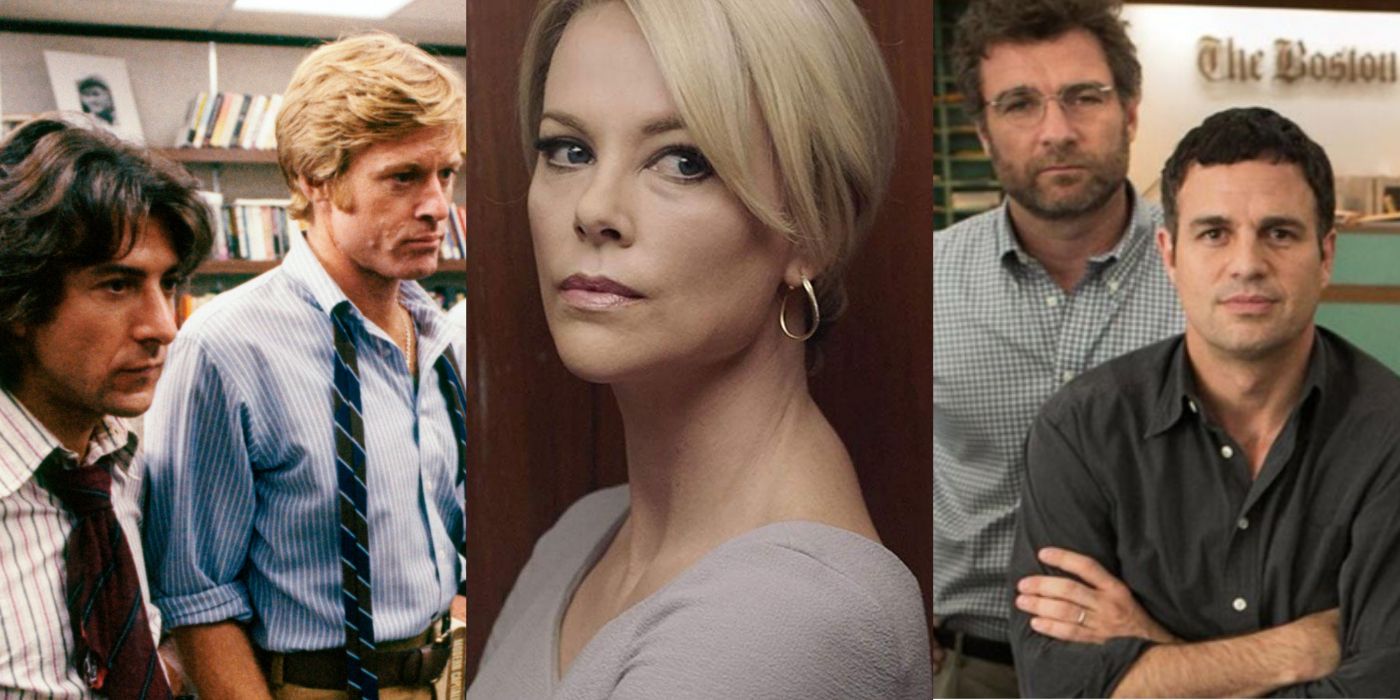
Related
10 Journalist Movies Like Carey Mulligan’s She Said
She Said, starring Carey Mulligan, is the latest in a long line of films about journalists breaking stories that expose crime and corruption.
Considering the violent end to the Munich Olympics attack and the movie’s focus on reporters, it will be interesting to see how September 5 handles the final moments of the crisis. In general, the movie may have far less violence than the actual events, as the reporters covered the situation from afar. Either way though, September 5 will likely pull on the most horrifying moments of this event, whether audiences actually get to see them or not. The journalists’ perspective will simply add another layer of helplessness to the already bleak crisis.
How The Attack Changed The 1972 Munich Olympics
The Olympics Had A Controversial Reaction To The Event
As previously mentioned, the terrorist attack against the Israeli Olympians caused the Munich Olympics to be suspended for a total of 34 hours, which had never happened in the history of the modern Olympics. Despite this, many were upset that the Olympic Committee took so long to suspend the games. Furthermore, critics felt that Olympic leaders did not spend nearly enough time unpacking what had occurred. Regardless, the Olympics continued and the remainder of the Israeli athletes withdrew. Athletes from other countries also left, fearing for their own safety, including American swimmer, Mark Spitz, (via Ellis, Jack.)
It wasn’t until 2016 that the IOC finally commemorated the Israeli victims, and a moment of silence did not occur until 2020.
To this day, the 1972 Munich Olympics crisis continues to affect the Olympic Games. Over the years, the IOC has denied outcries for a memorial or a moment of silence to honor the victims during the Olympic opening ceremonies. It wasn’t until 2016 that the IOC finally commemorated the Israeli victims, and a moment of silence did not occur until 2020. In this way, September 5 will serve as a reminder of this event that many have tried hard to forget. Hopefully, September 5 can honor the lives of the Israeli victims and teach audiences about this terrifying historical moment.

